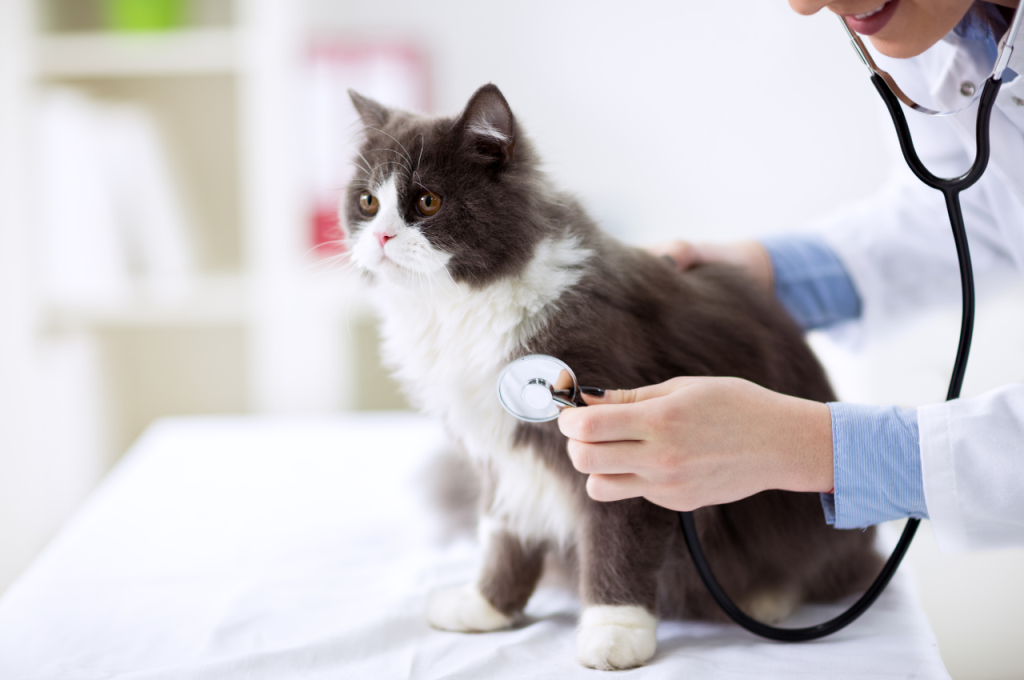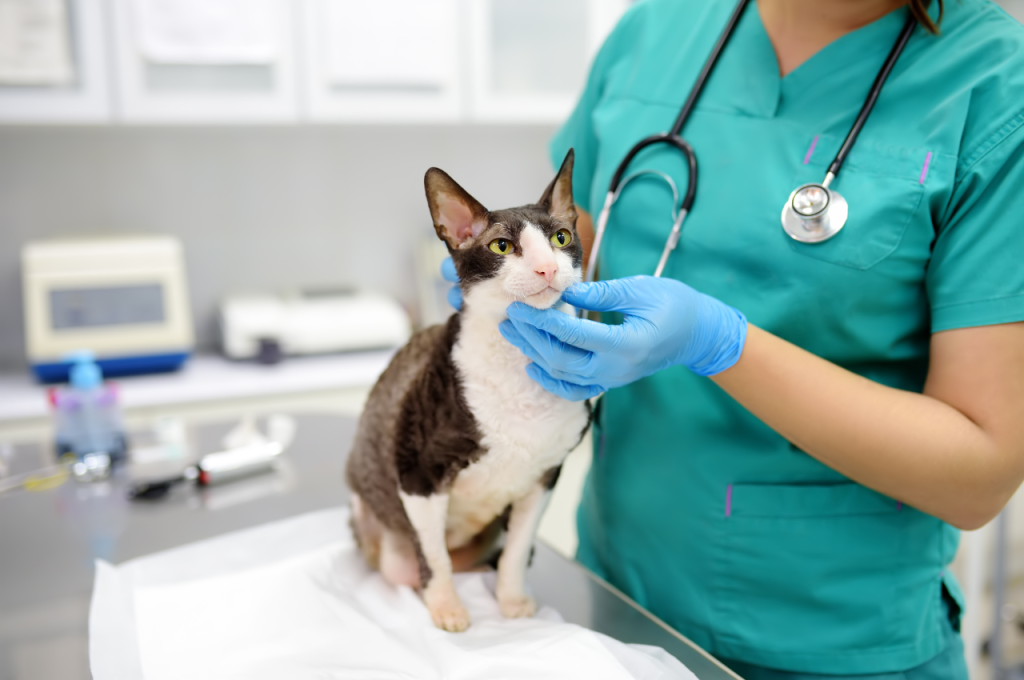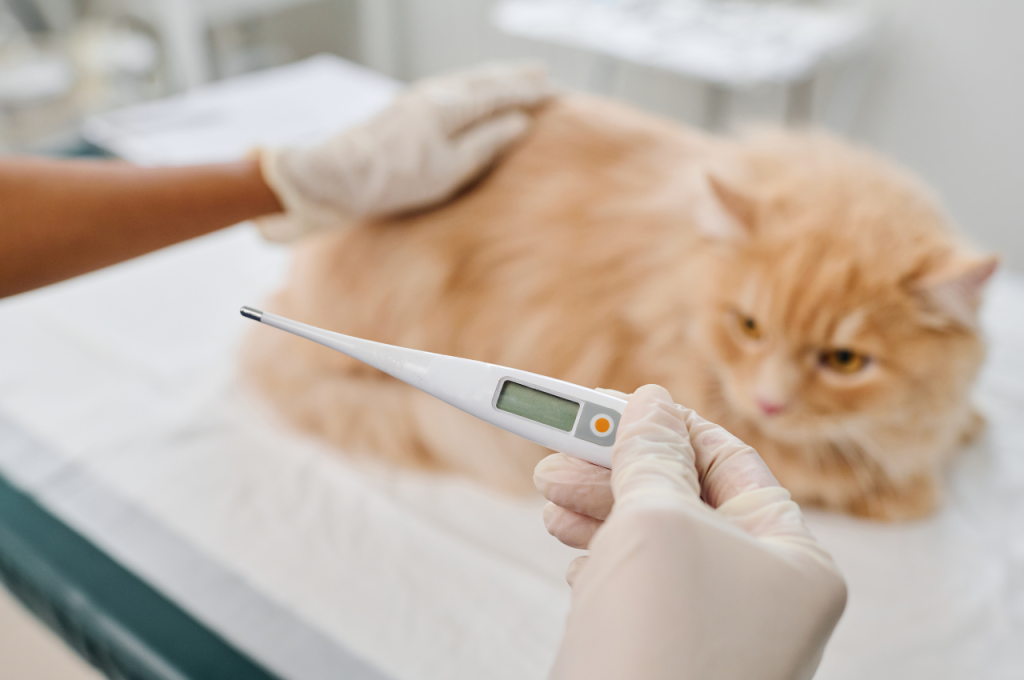A cat health check includes a thorough examination of the cat’s body, including the eyes, ears, teeth, skin, and coat, as well as checking vital signs like heart rate and temperature. The vet will also assess the cat’s weight, listen to their heart and lungs, and recommend additional tests such as blood work or x-rays to ensure overall health and detect any underlying conditions.
This comprehensive check-up helps to identify any potential health issues early on and allows for prompt treatment and prevention of future problems. Regular health checks are essential in maintaining a cat’s well-being and ensuring a long and happy life.
Introduction to Feline Wellness
Caring for your feline companion involves more than just providing food and shelter. Ensuring your cat’s well-being requires regular health checks to detect and prevent any potential issues. A comprehensive cat health check encompasses various factors, from physical examinations to vaccinations and preventive care.

Importance of Regular Vet Visits
Scheduling regular vet visits for your cat is crucial to maintaining their health and well-being. Routine check-ups allow veterinarians to assess your cat’s overall health, detect early signs of illness, and provide preventive care to keep your feline friend healthy and happy.
Frequency of Health Checks for Cats
The frequency of health checks for cats can vary depending on their age, health status, and any specific health concerns. Generally, adult cats should have a comprehensive health check at least once a year, while senior cats may benefit from more frequent visits, typically every six months, to monitor age-related health issues.
Weight and Body Condition Assessment
When it comes to the health of your feline friend, a comprehensive weight and body condition assessment is a crucial aspect of a cat health check. This evaluation provides valuable insights into your cat’s overall well-being and can help identify potential health issues early on. Let’s take a closer look at what this assessment entails.
Ideal Weight Ranges For Cats
Understanding the ideal weight range for your cat is essential for assessing their overall health. Different cat breeds have varying ideal weight ranges, so it’s important to consult with your veterinarian to determine the appropriate weight range for your specific feline companion.
Interpreting Body Condition Scores
Body condition scores are used to assess a cat’s body composition and overall condition. These scores take into account factors such as the visibility of the ribs, waistline, and abdominal tuck. By understanding and interpreting these scores, pet owners can gain valuable insights into their cat’s health and make informed decisions regarding their care and nutrition.
Coat And Skin Examination
During a cat health check, examining the coat and skin is crucial to assess the overall health and well-being of your feline friend. The condition of a cat’s coat and skin can provide valuable insights into their health, revealing signs of underlying issues or potential concerns that may require attention.
Signs Of A Healthy Coat
A healthy cat’s coat should be smooth, shiny, and free from bald patches or excessive shedding. The coat should be free from fleas, ticks, or other parasites, and the skin should be clean and free from any signs of irritation or inflammation.
Common Skin Conditions In Felines
Cats can experience a range of skin conditions that may affect their overall well-being. Common skin conditions in felines include allergies, dermatitis, fungal infections, and parasitic infestations. These conditions can cause symptoms such as itching, redness, hair loss, and the presence of sores or lesions on the skin.
Dental Health Evaluation
During a dental health evaluation for cats, a comprehensive check includes examining teeth, gums, and oral hygiene. The vet assesses for tartar buildup, gum disease, and potential dental issues. Regular check-ups are crucial for maintaining a cat’s overall health and preventing dental problems.
Checking For Gum Disease And Tartar
Regular cat health checks include examining for signs of gum disease and tartar build-up.
Preventive Dental Care Tips
- Brush your cat’s teeth regularly with feline toothpaste.
- Provide dental treats or toys to help reduce plaque.
- Offer dental diets recommended by your vet.
Ear And Eye Health
A cat health check includes an examination of the ears and eyes to ensure they are free from infections and abnormalities. The vet will look for signs of ear mites, ear infections, and eye conditions such as conjunctivitis. Regular checks help maintain your cat’s overall well-being and prevent potential health issues.
Identifying Signs Of Infection Or Illness
Keeping your cat’s ears and eyes healthy is crucial for their overall well-being. Regular check-ups can help identify any signs of infection or illness. Signs of ear infections in cats include scratching of the ears, head shaking, and discharge. If you notice any of these signs, it’s important to take your cat to the vet for a check-up. Similarly, signs of eye infections in cats include redness, discharge, and squinting. These symptoms could indicate a more serious issue, so it’s important to address them promptly.
Routine Care For Eyes And Ears
Preventative care is key to maintaining the health of your cat’s ears and eyes. Routine cleaning of the ears can help prevent infections. Use a gentle ear cleaner and a cotton ball to clean the outer ear. Avoid using Q-tips as they can push debris further into the ear canal. Similarly, keeping your cat’s eyes clean can help prevent infections. Use a damp cloth or cotton ball to clean the area around the eye. If you notice any discharge or irritation, contact your vet. In conclusion, regular check-ups and preventative care are important for maintaining the health of your cat’s ears and eyes.

By identifying signs of infection or illness early, you can prevent more serious issues from arising. Don’t hesitate to contact your vet if you notice any changes in your cat’s behavior or appearance. With proper care, your cat can enjoy healthy ears and eyes for years to come.
Respiratory System Check
A cat health check includes a thorough examination of the respiratory system to assess breathing patterns, lung sounds, and overall respiratory health. The vet may listen for abnormal sounds, check for labored breathing, and evaluate the cat’s oxygen levels to ensure optimal respiratory function.
A respiratory system check is an important part of a cat’s health check-up. The respiratory system includes the nose, throat, and lungs and is responsible for breathing and oxygenation of the body.
Listening to the Lungs
During a cat’s health check-up, the veterinarian will listen to the cat’s lungs with a stethoscope to check for any abnormal sounds. This is done by placing the stethoscope on different parts of the chest and back to listen to the air moving in and out of the lungs.
Recognizing Respiratory Issues
Respiratory issues in cats can manifest in various ways, including coughing, sneezing, wheezing, and difficulty breathing. If the veterinarian detects any abnormal sounds or other signs of respiratory issues during the health check-up, further tests may be needed to diagnose the problem. Some common respiratory issues in cats include:
- Upper respiratory infections: These can be caused by viruses or bacteria and can lead to sneezing, coughing, nasal discharge, and fever.
- Asthma: This is a chronic condition that causes inflammation and narrowing of the airways, leading to coughing, wheezing, and difficulty breathing.
- Pneumonia: This is an infection of the lungs that can be caused by bacteria, viruses, or fungi and can lead to coughing, fever, and difficulty breathing.
If you notice any signs of respiratory issues in your cat, such as coughing, sneezing, or difficulty breathing, it’s important to take them to the veterinarian for a health check-up. Early detection and treatment of respiratory issues can help prevent more serious health problems down the line.
Digestive Health and Nutrition
A cat health check typically includes an evaluation of the cat’s digestive health and nutrition. This involves assessing the cat’s eating habits, digestion, and overall gastrointestinal well-being. The veterinarian may also recommend dietary adjustments to promote better digestive function and overall health.
Assessing Digestive Function
- Cats’ digestive systems play a crucial role in their overall health.
- Regular vet check-ups involve evaluating digestion efficiency.
Importance Of A Balanced Diet
- A balanced diet is essential for cats’ digestive health.
- It ensures they receive the necessary nutrients for optimal well-being.
Vaccination and Parasite Control
Vaccination and Parasite Control are crucial aspects of a cat’s health check.
Keeping vaccination records updated and preventing fleas, ticks, and worms
are essential for your feline friend’s well-being.
Updating Vaccination Records
Regularly updating your cat’s vaccination records protects
them from harmful diseases. Vaccines boost immunity
against common illnesses like rabies and feline leukemia.
Preventing Fleas, Ticks, And Worms
- Fleas, ticks, and worms can cause serious health issues in cats.
Use preventive treatments to safeguard your cat from these parasites.
Behavioral and Emotional Well-being
A cat health check typically includes assessing weight, teeth, ears, eyes, and fur condition. Veterinarians also check for signs of any behavioral or emotional well-being issues to ensure overall feline health. Regular check-ups are crucial for early detection and prevention of potential health concerns in cats.
During a cat health check, a veterinarian not only examines your feline’s physical health but also considers their behavioral and emotional well-being. As a responsible cat parent, you must ensure that your pet is happy, healthy, and stress-free. In this blog post, we will discuss the importance of behavioral and emotional well-being during a cat health check and what you can expect.
Observing Changes In Behavior
Cats are masters of hiding their discomfort and pain. Therefore, observing changes in their behavior is crucial to detect any underlying health issues. During a cat health check, a veterinarian will ask you about your cat’s behavior, including their eating habits, litter box usage, and playtime. Any changes in these behaviors can indicate underlying health issues such as dental problems, digestive issues, or anxiety. By observing changes in your cat’s behavior, a veterinarian can diagnose and treat any potential health issues before they become more serious.
Stress Reduction and Environmental Enrichment
Cats are highly sensitive to their environment and can easily get stressed, leading to health problems. During a cat health check, a veterinarian will assess your cat’s stress level and provide recommendations for stress reduction and environmental enrichment. Stress reduction techniques may include pheromone therapy, herbal remedies, or medication. Environmental enrichment may include providing toys, scratching posts, and perches to keep your cat mentally and physically stimulated. By reducing stress and providing environmental enrichment, you can improve your cat’s overall health and well-being.
In conclusion, during a cat health check, a veterinarian not only examines your cat’s physical health but also considers their behavioral and emotional well-being. By observing changes in your cat’s behavior and providing stress reduction and environmental enrichment, you can ensure your feline friend is happy, healthy, and stress-free.
Final Thoughts and Next Steps
After a cat health check, it is important to reflect on the findings and plan the next steps. A comprehensive check-up typically includes an examination of the cat’s vital signs, eyes, ears, teeth, coat, and overall body condition. It may also involve blood tests, fecal analysis, and vaccinations.
Taking appropriate actions based on the results will ensure the well-being of your feline friend.
Creating A Health Plan For Your Cat
As a responsible cat owner, it’s essential to have a health plan for your furry friend. A health plan involves scheduling regular check-ups, vaccinations, and preventive care measures. Your veterinarian can help you create a tailored health plan for your cat based on their age, breed, lifestyle, and medical history. This plan will ensure that your cat receives the necessary care they need to stay healthy and happy.
When To Schedule The Next Check-up
The frequency of cat health check-ups depends on several factors, such as age, health status, and lifestyle. Generally, adult cats should have a check-up at least once a year, while senior cats or those with chronic health conditions may require more frequent visits. Your veterinarian will recommend the appropriate schedule for your cat. It’s also crucial to schedule a check-up if you notice any changes in your cat’s behavior, appetite, or physical appearance.

In conclusion, a cat health check-up is a crucial aspect of responsible pet ownership. It includes a comprehensive physical examination, diagnostic tests, and preventive care measures to ensure your cat’s optimal health. By creating a health plan for your cat and scheduling regular check-ups, you can detect and treat potential health issues early on. So, if you haven’t done so already, book your cat’s next check-up appointment today and give them the gift of good health.
Conclusion
Regular cat health check-ups are crucial for maintaining the well-being of your feline companion. From a thorough physical examination to vaccinations, dental care, and parasite prevention, these check-ups help detect and prevent potential health issues. By prioritizing your cat’s healthcare needs, you can ensure a long and happy life for your beloved pet.
Remember, consulting with a veterinarian is always the best course of action for personalized advice and guidance.
